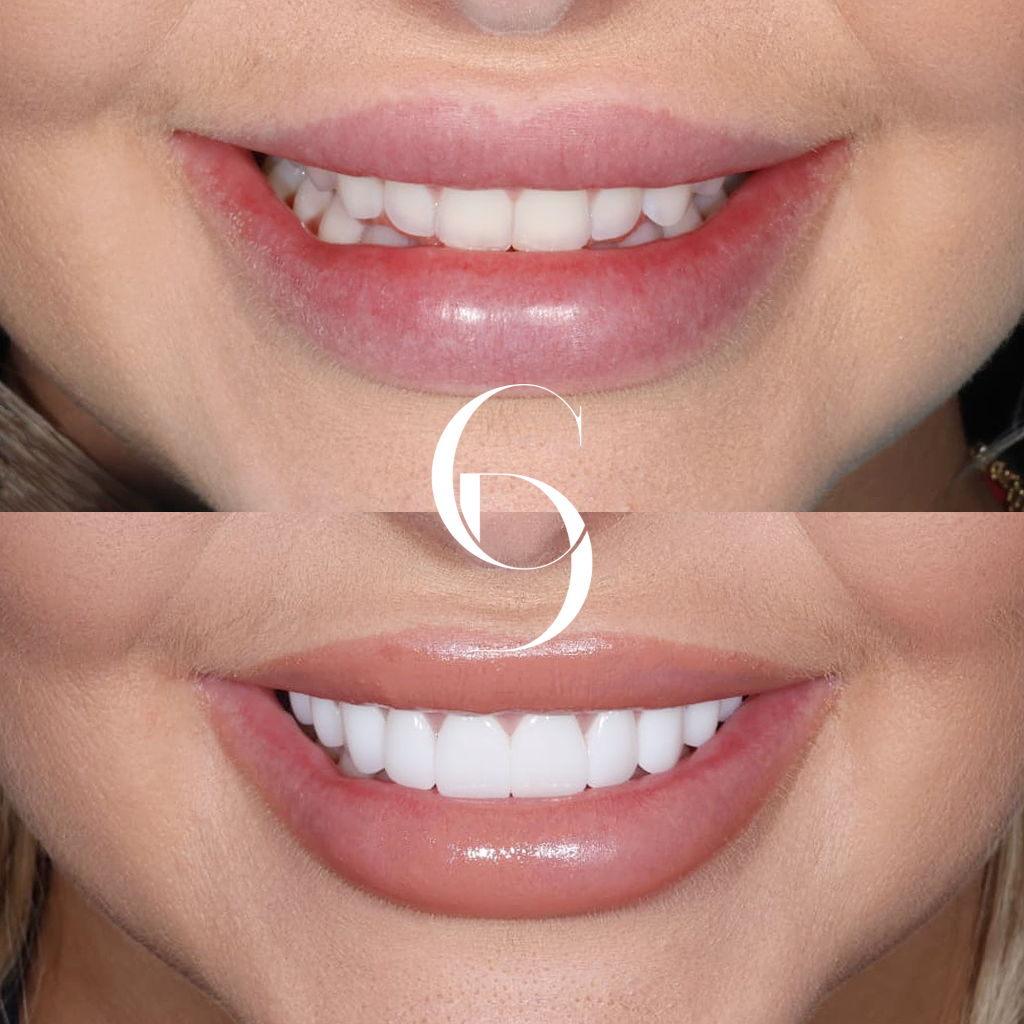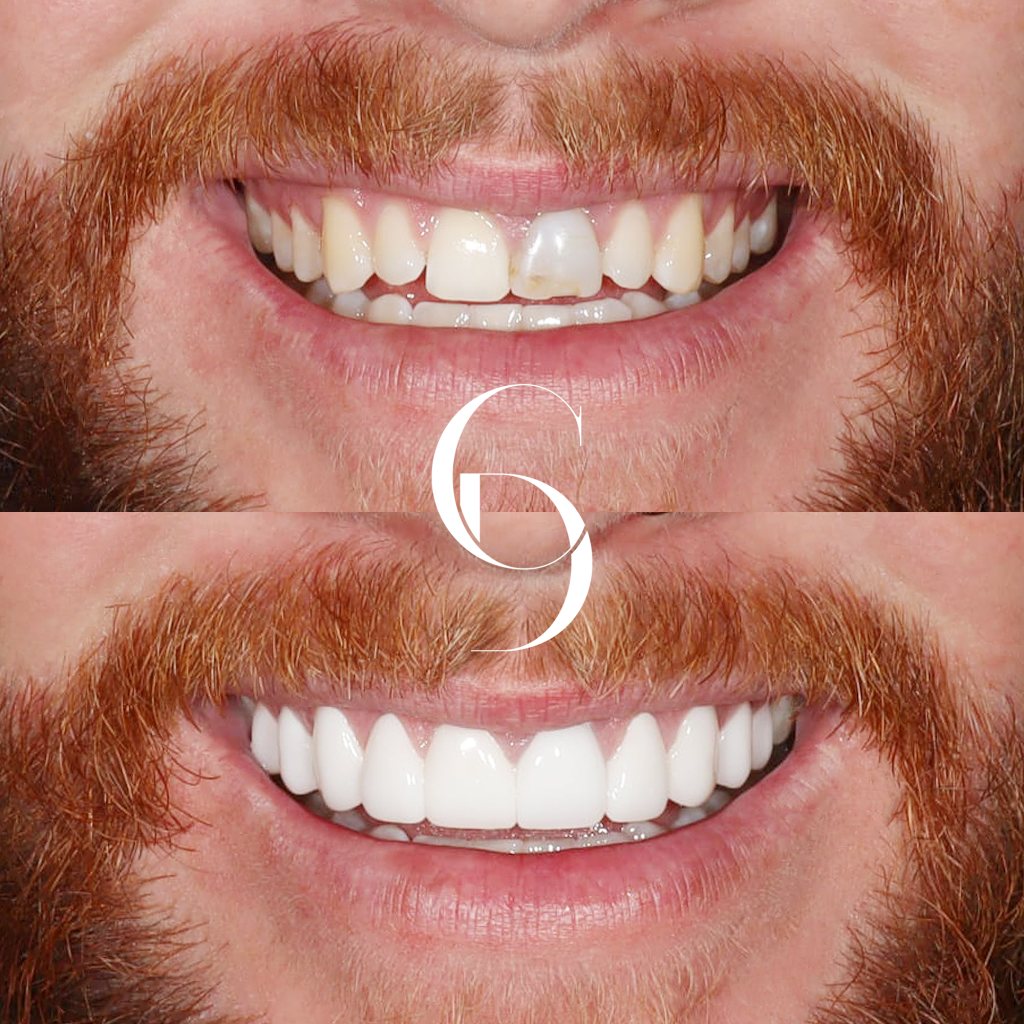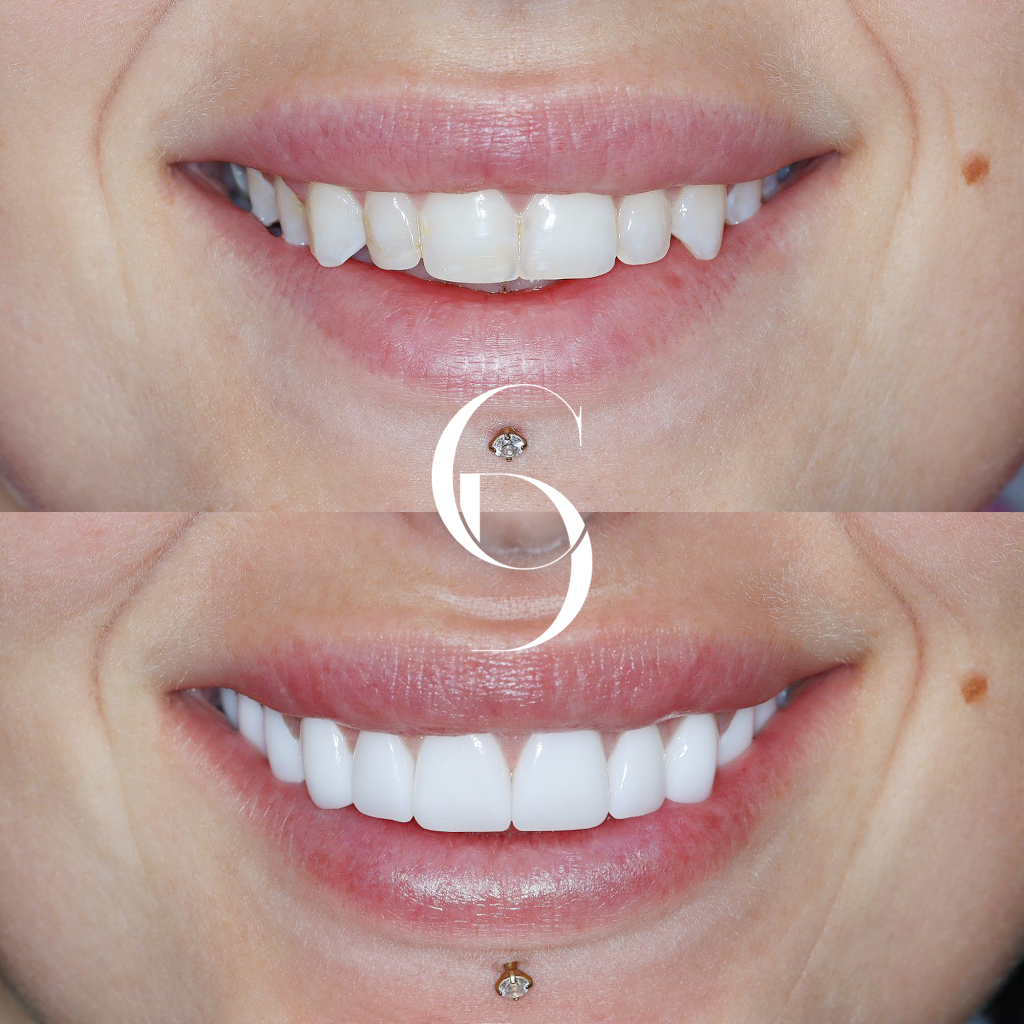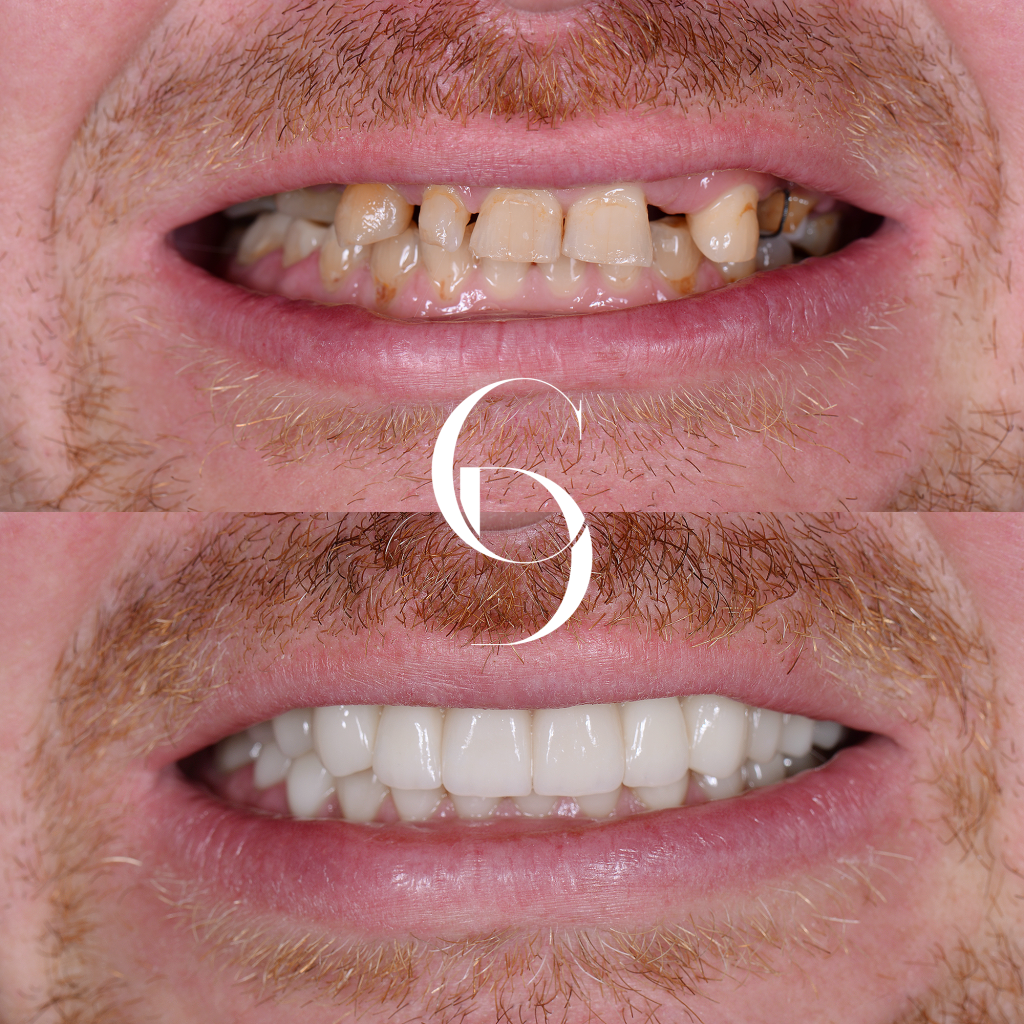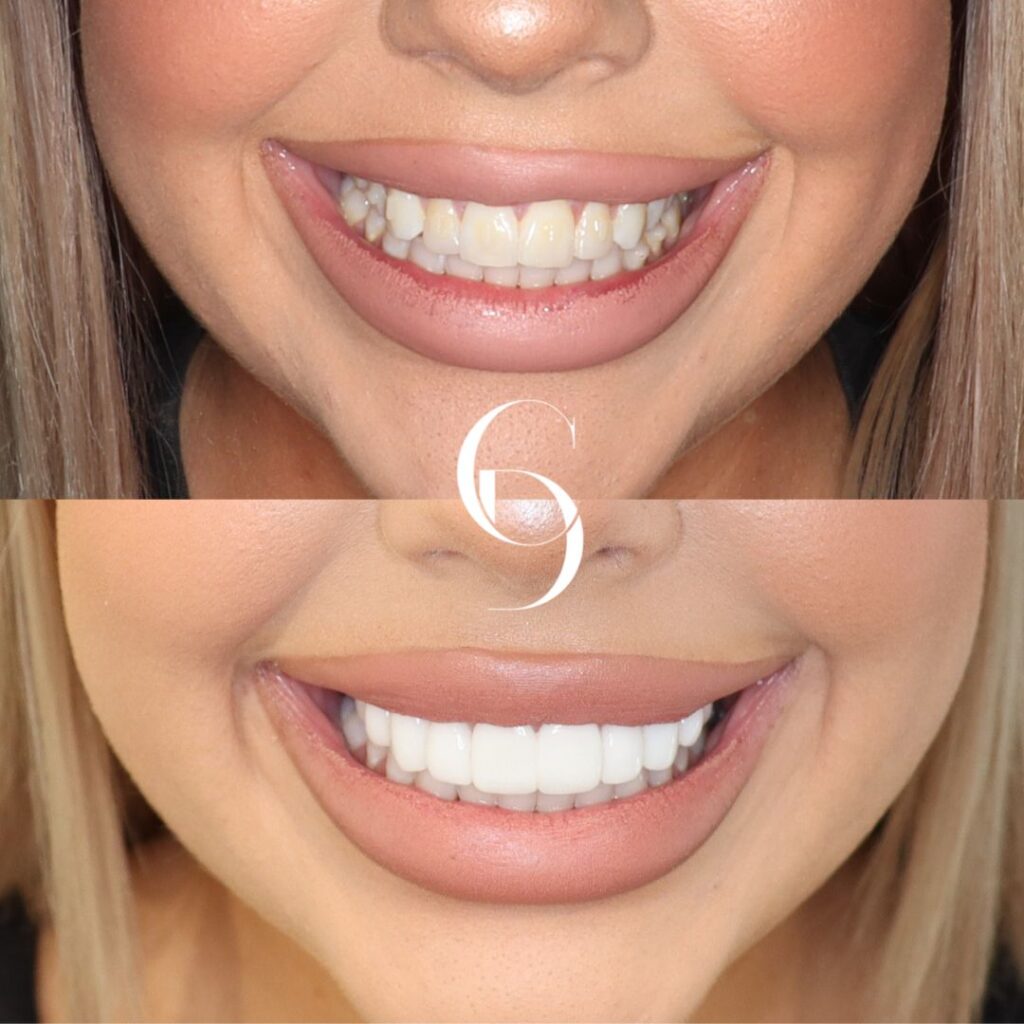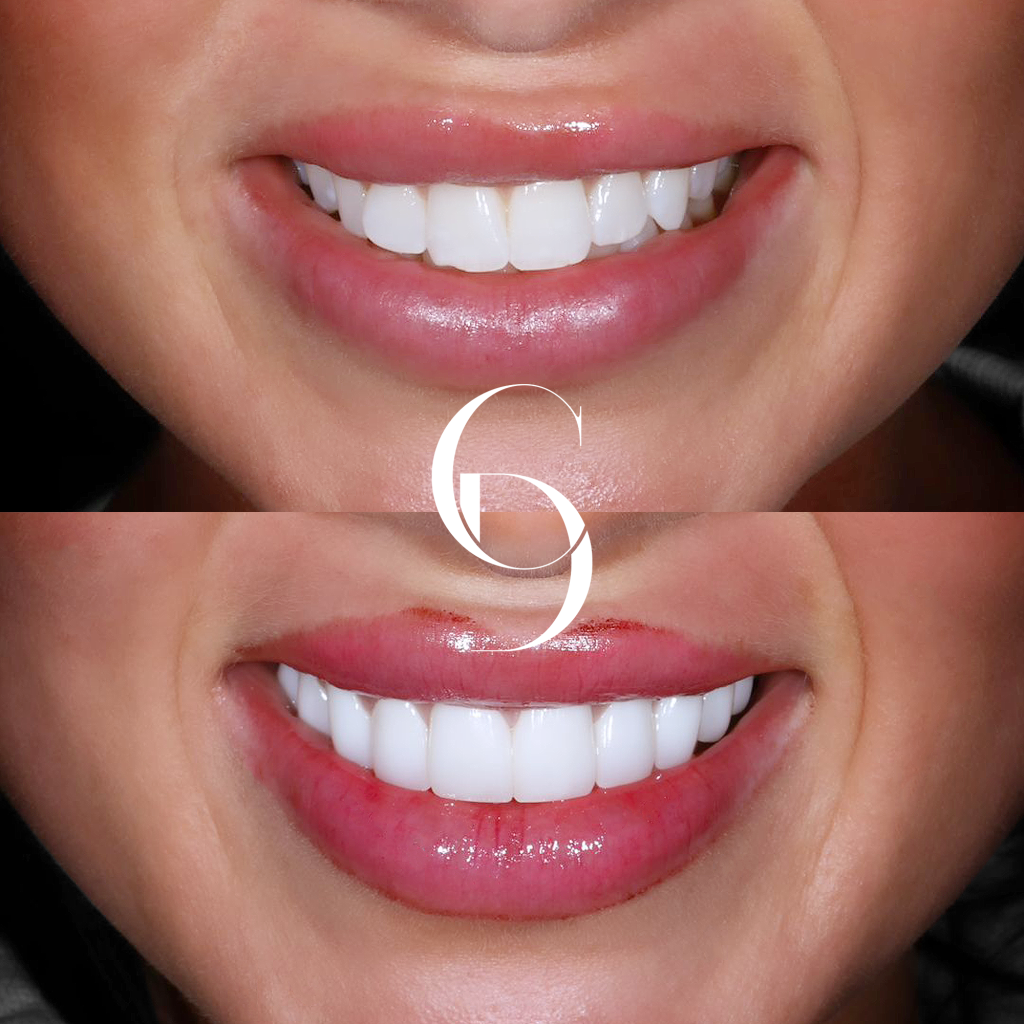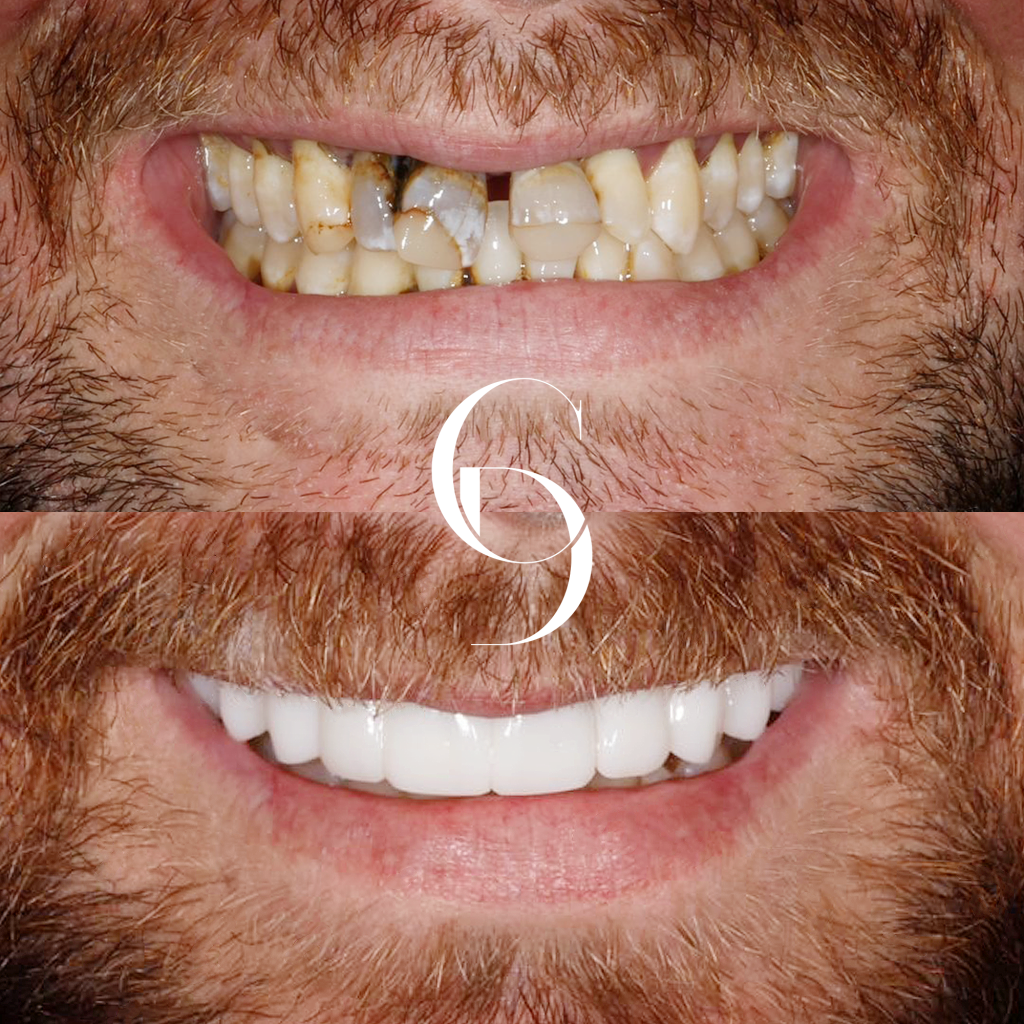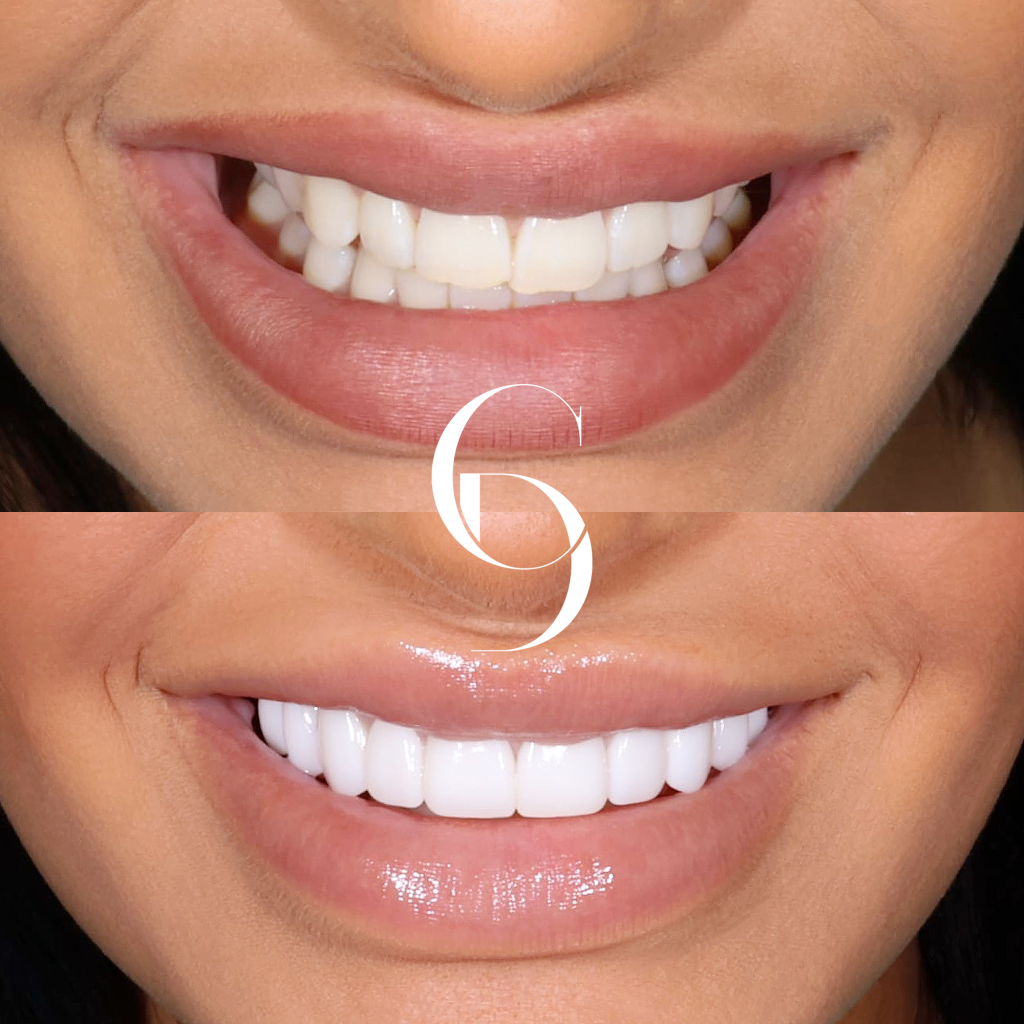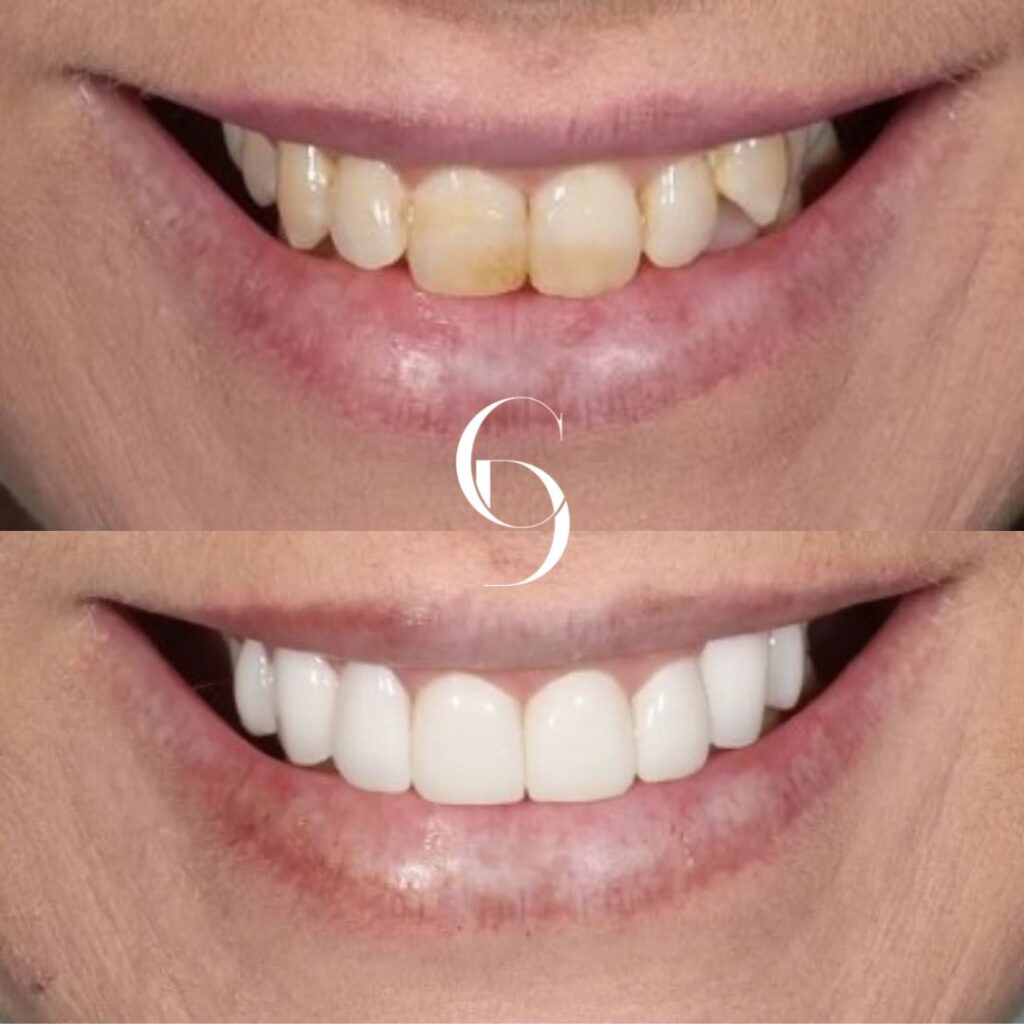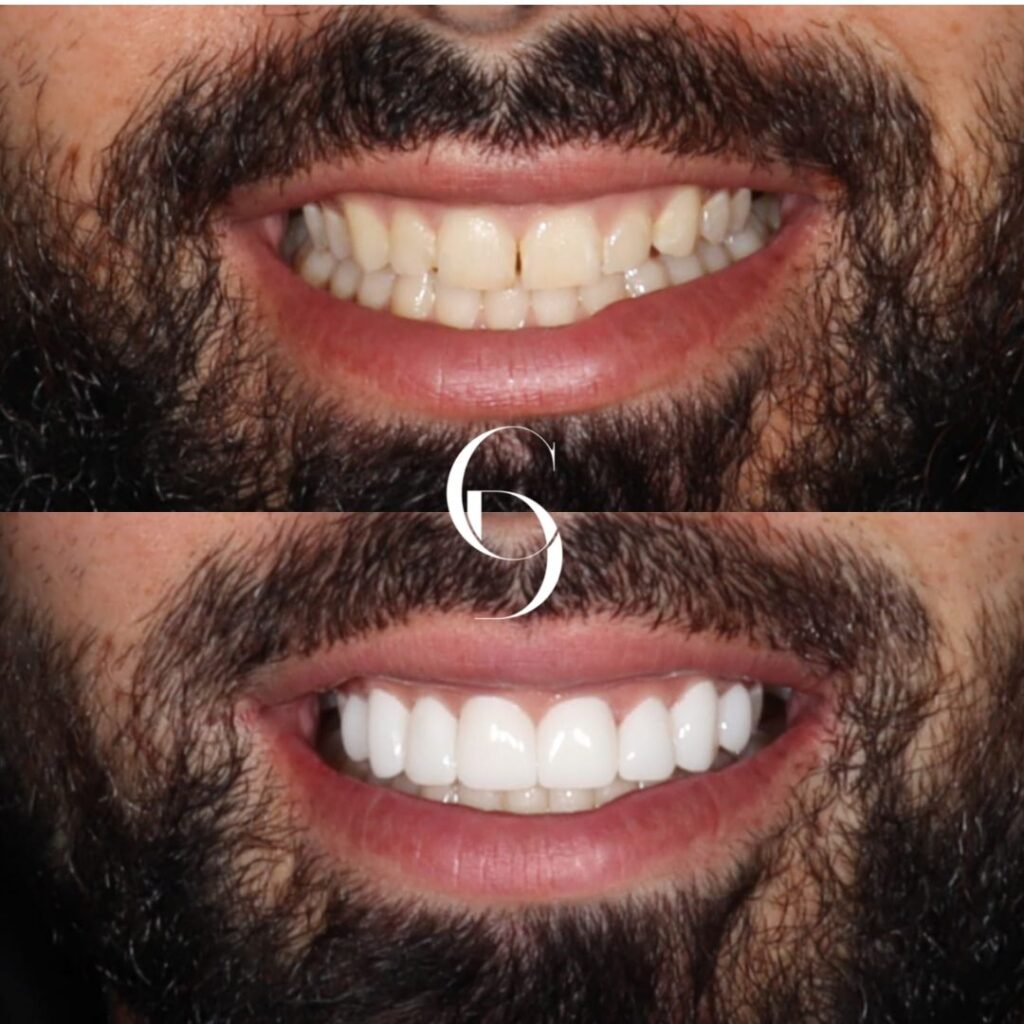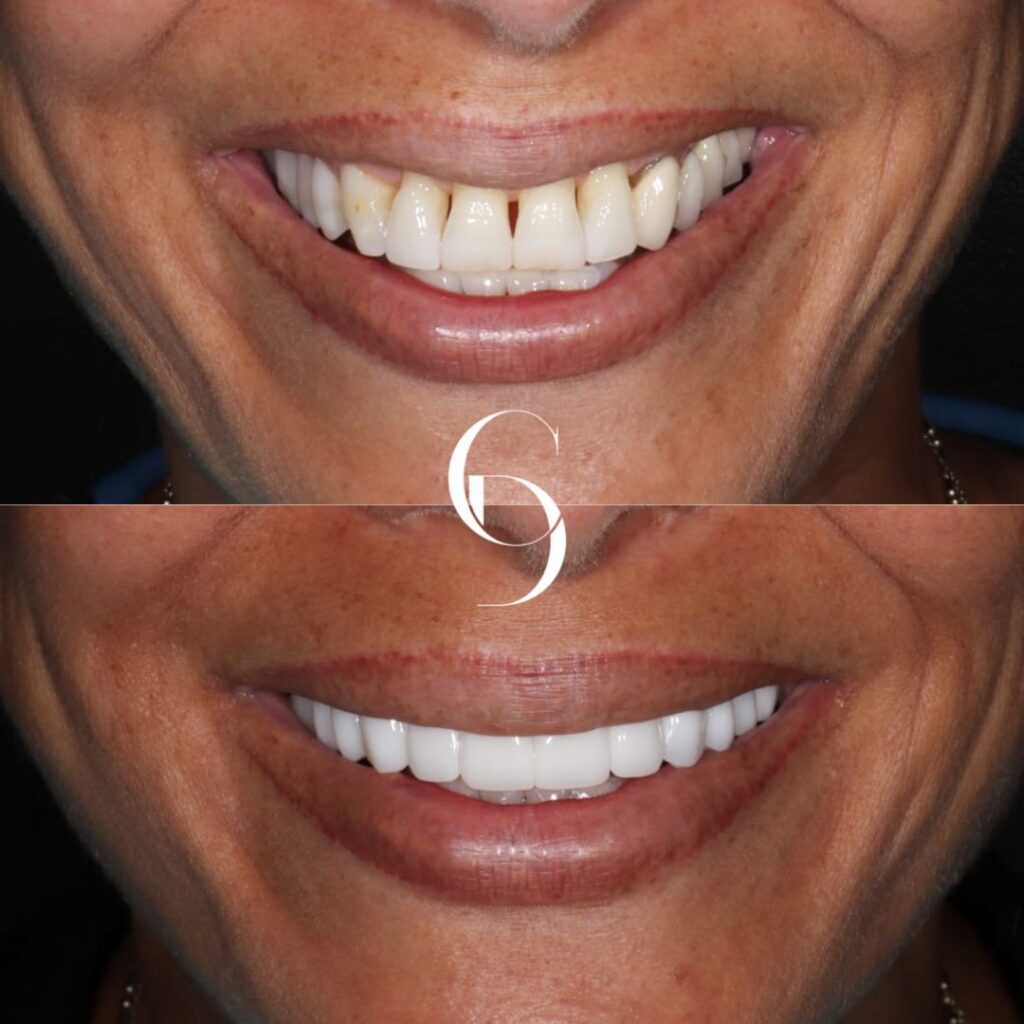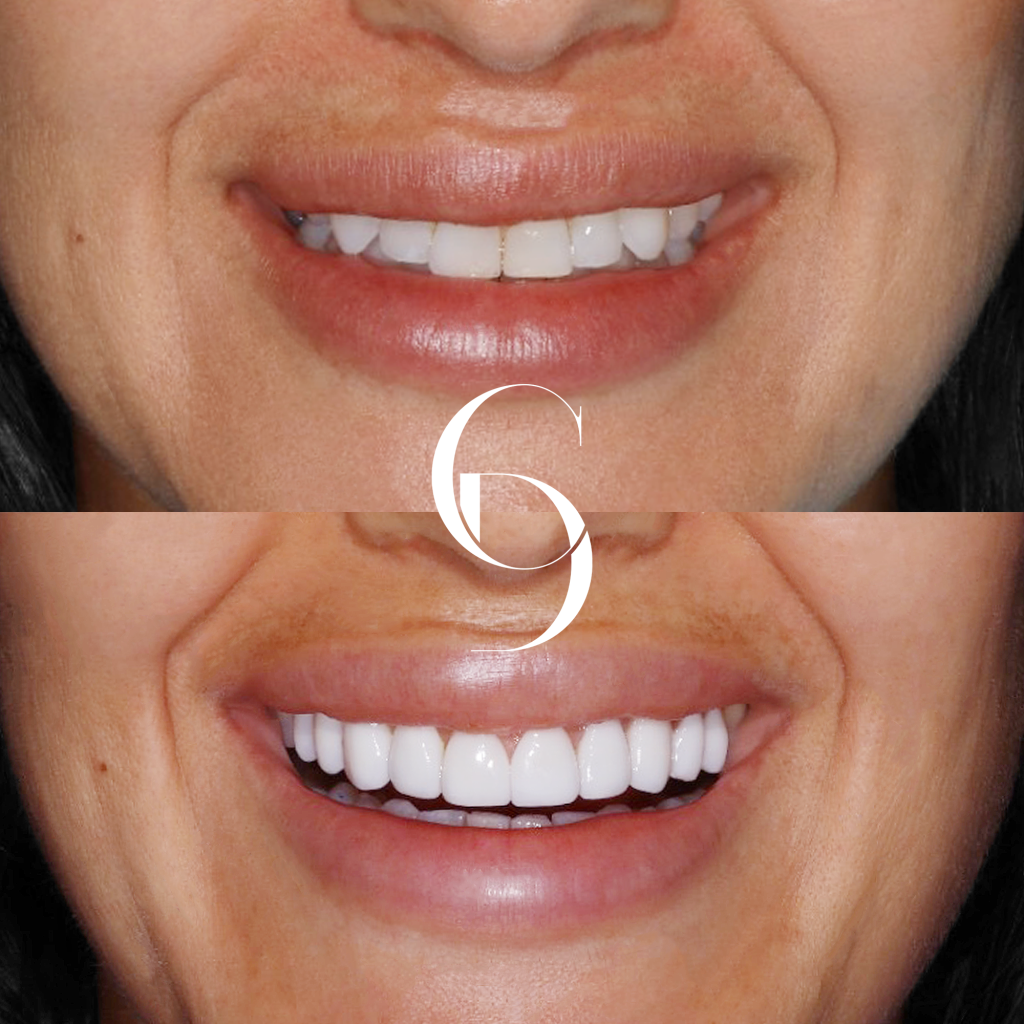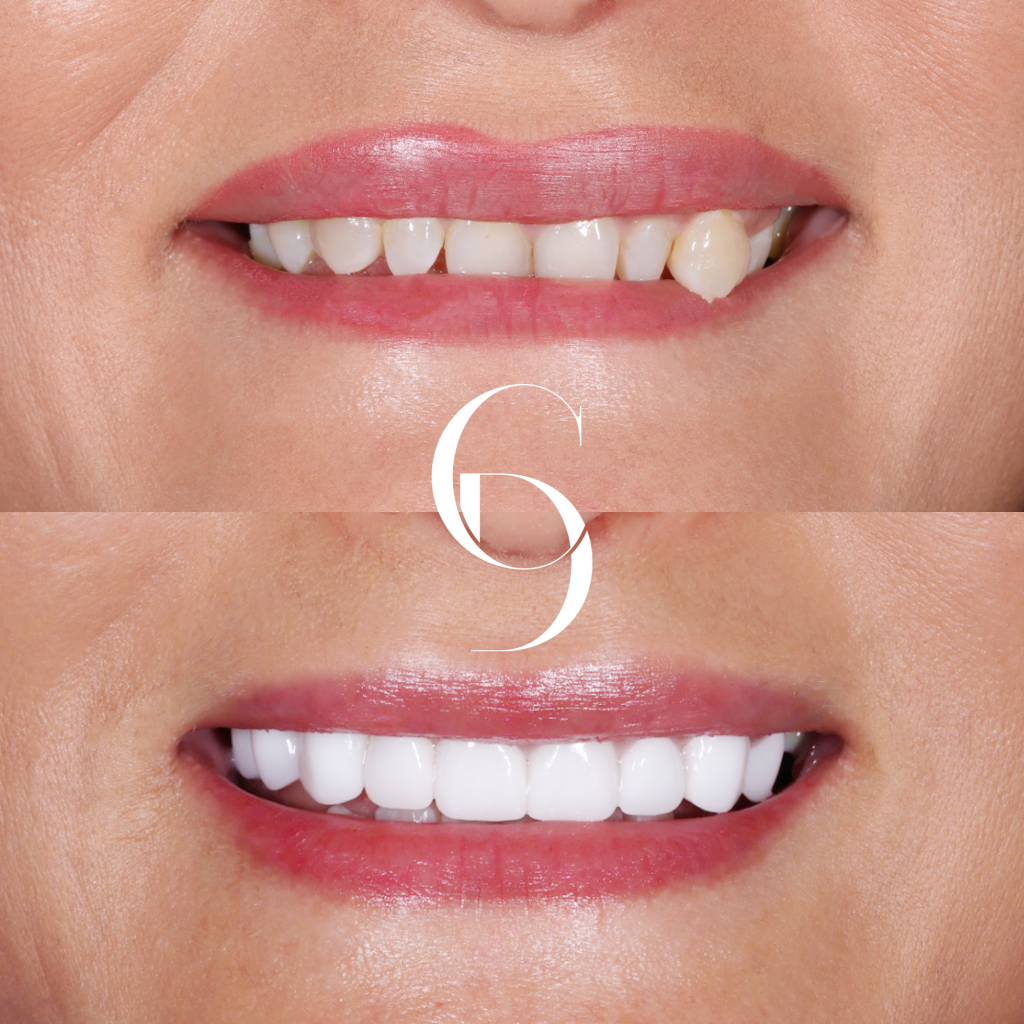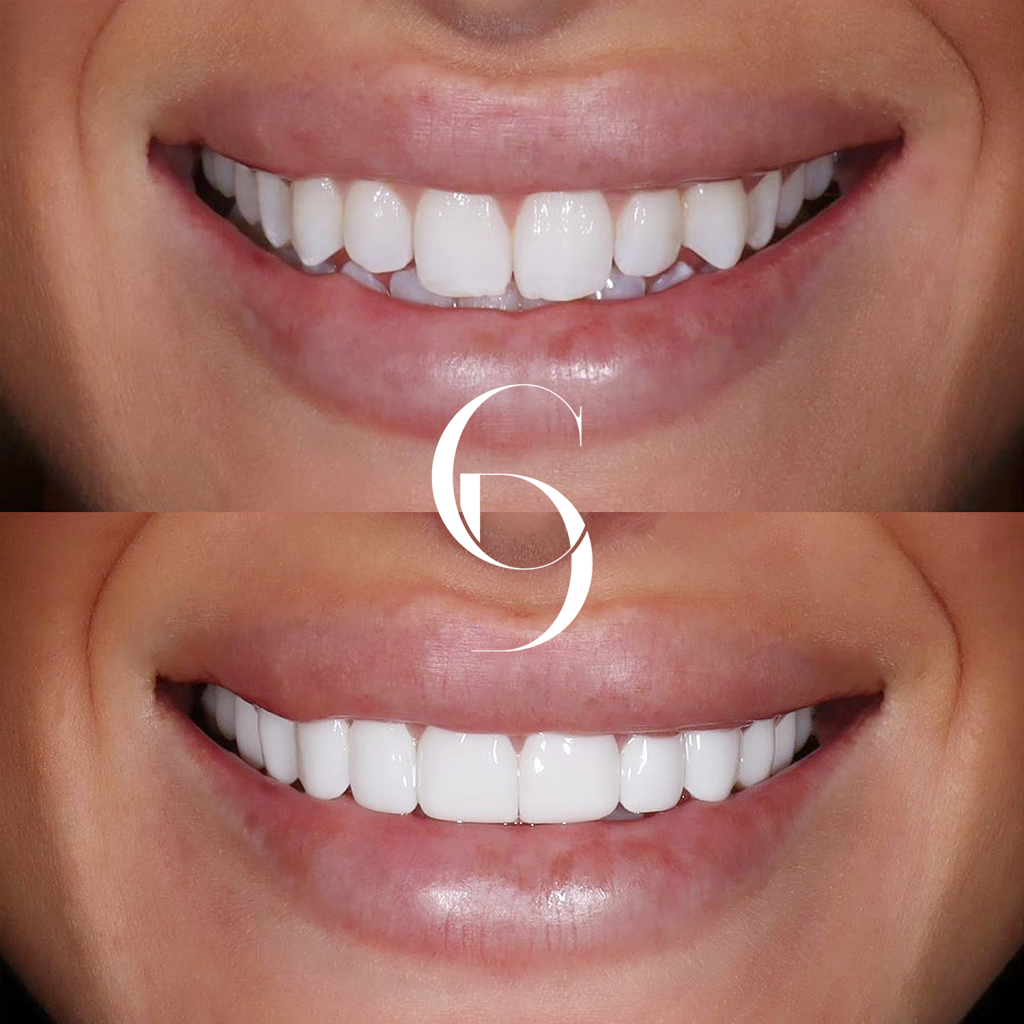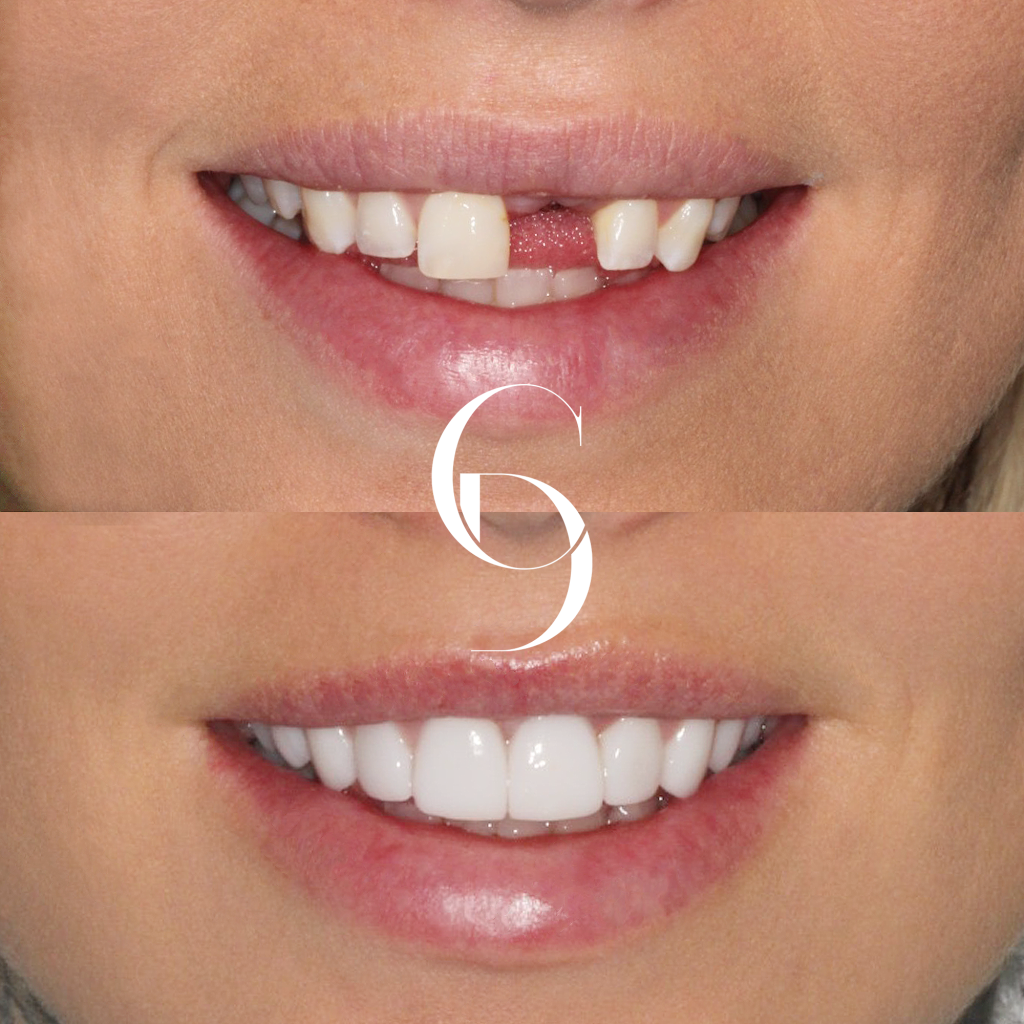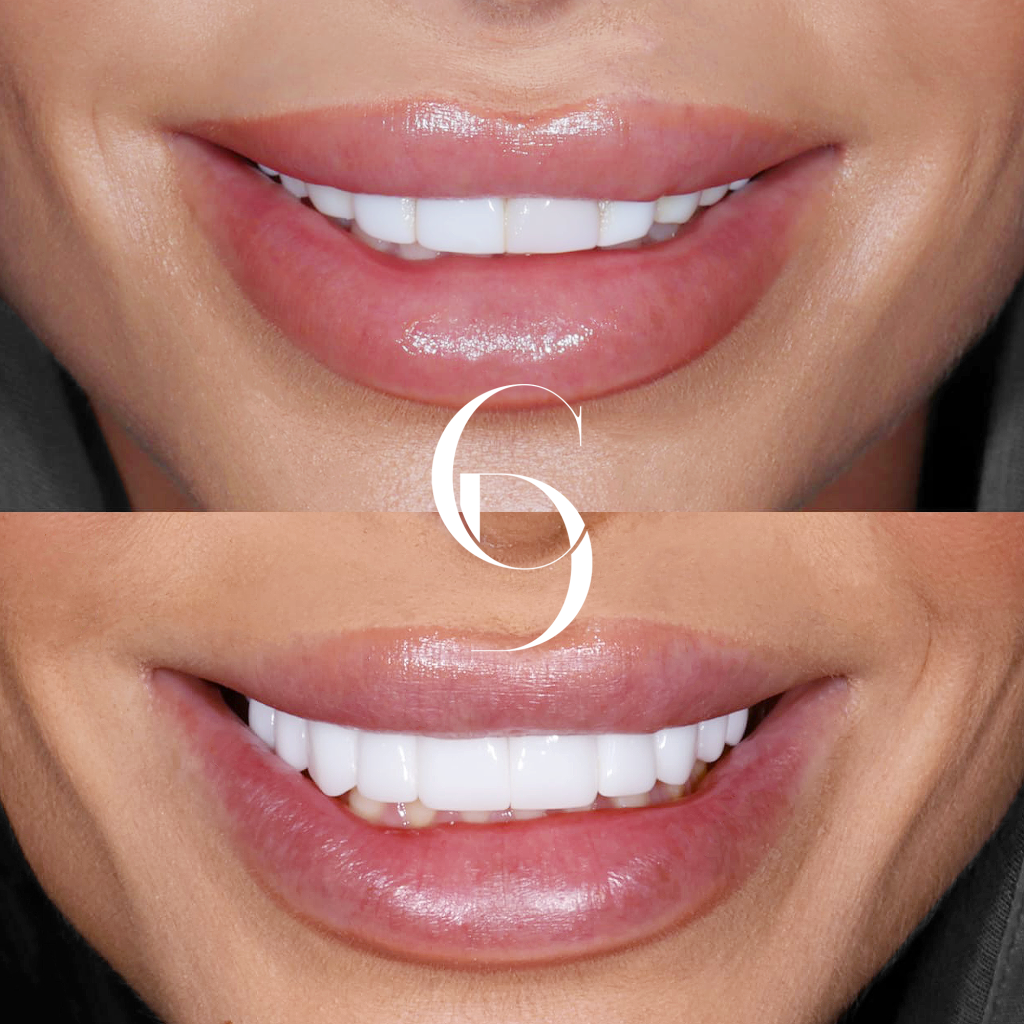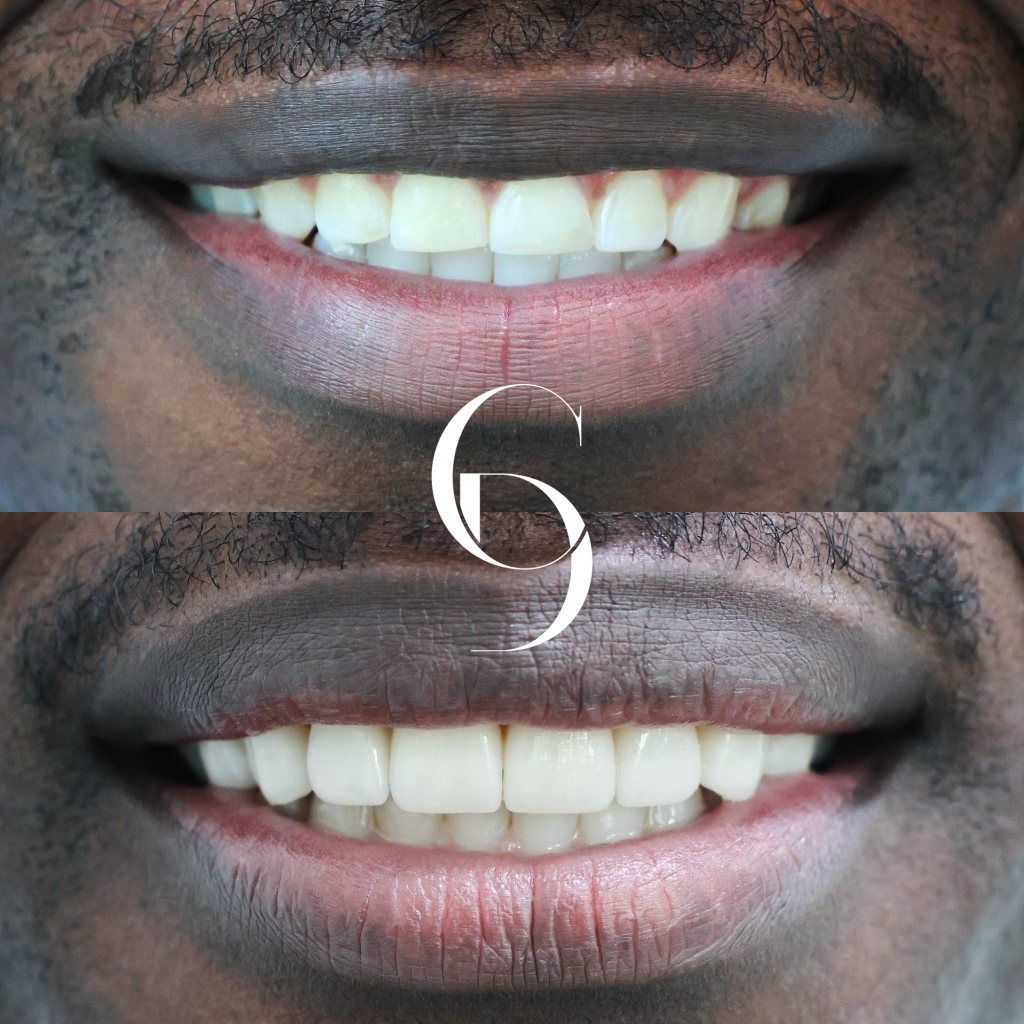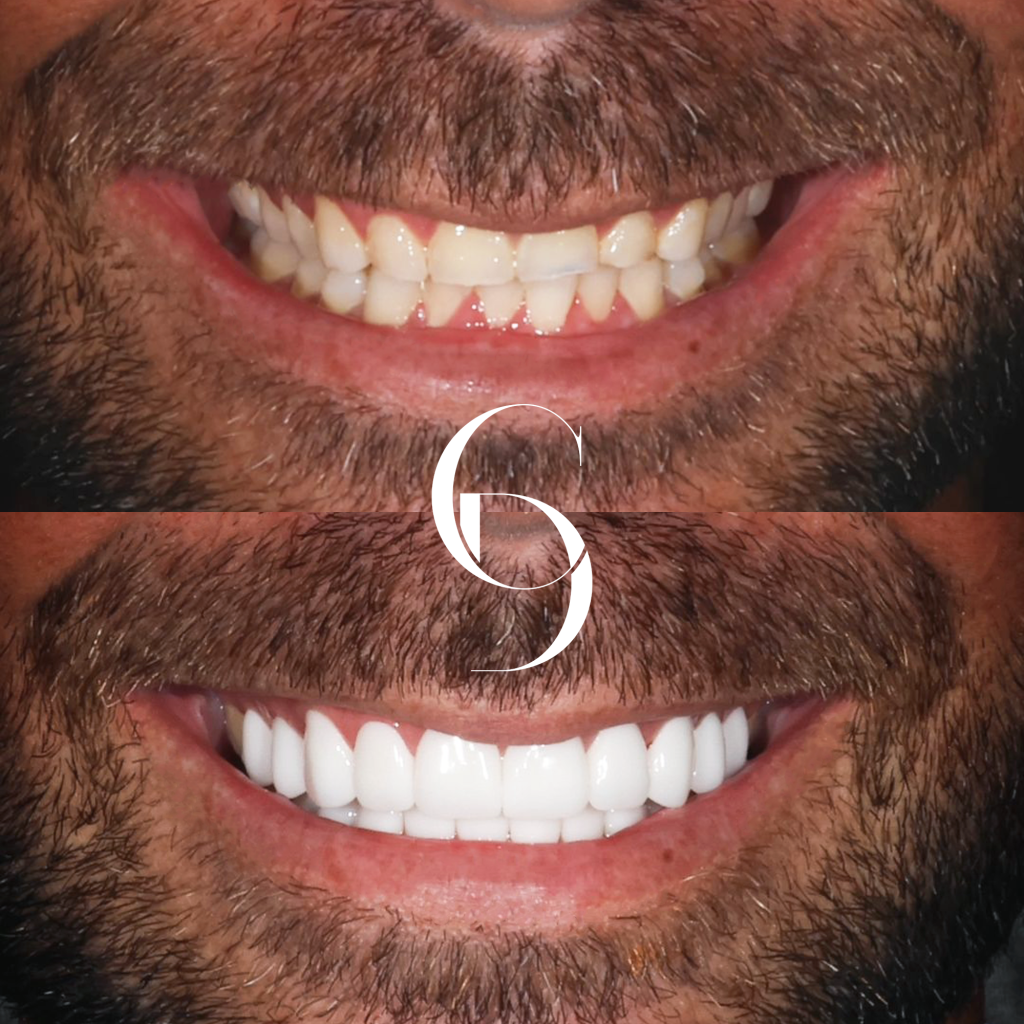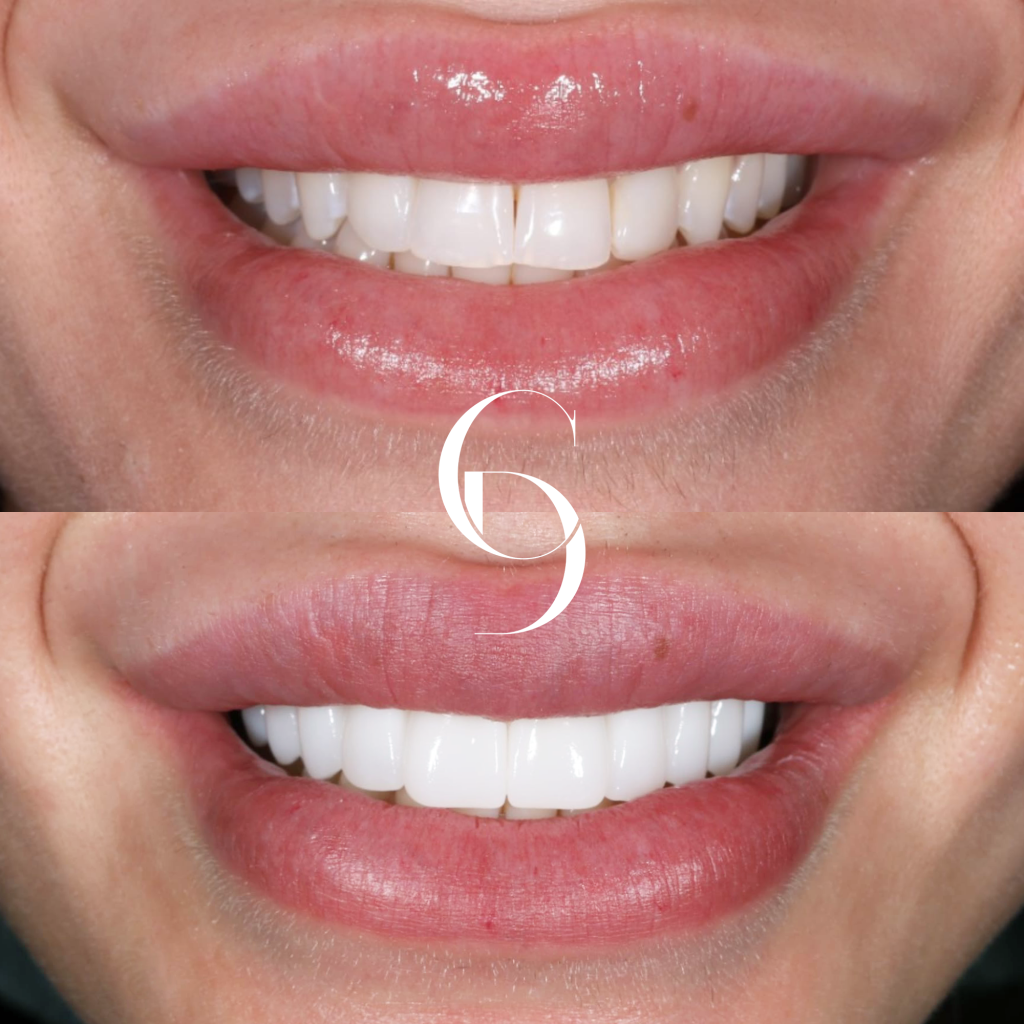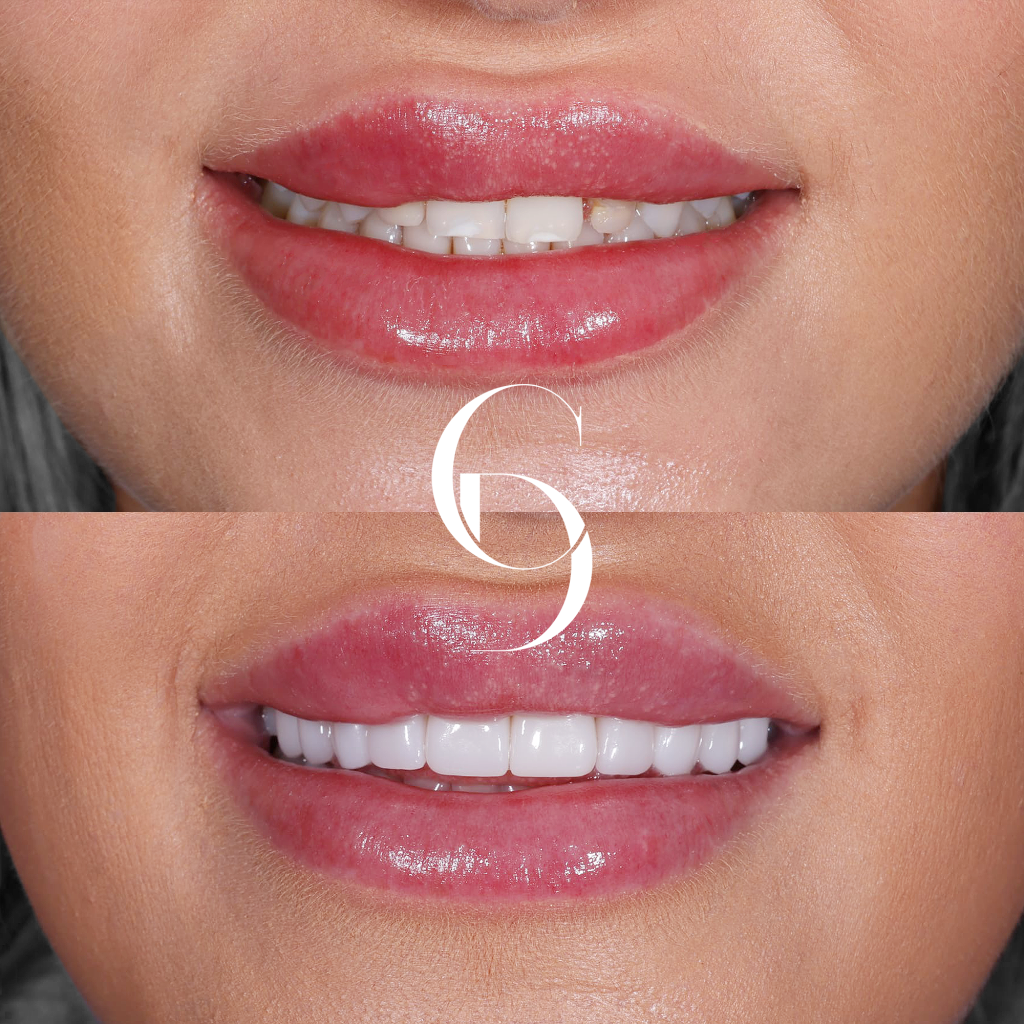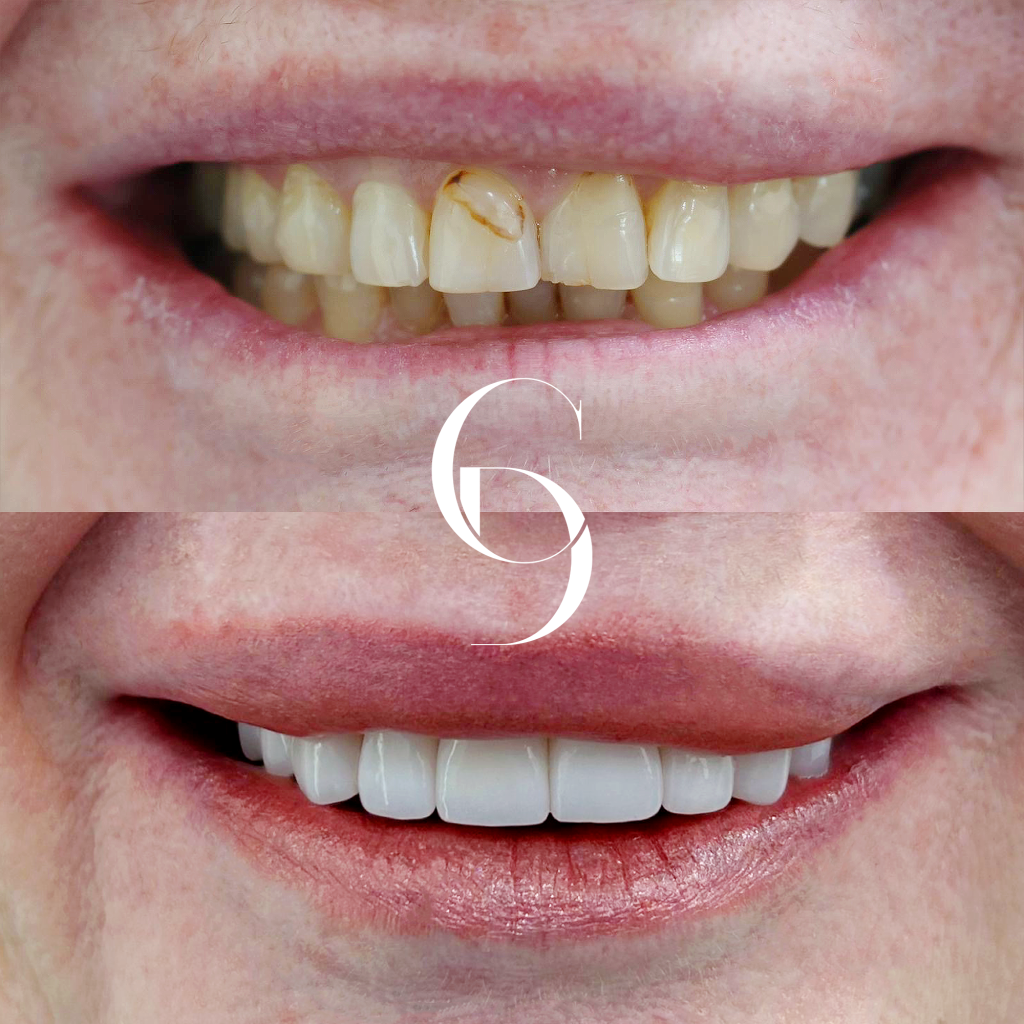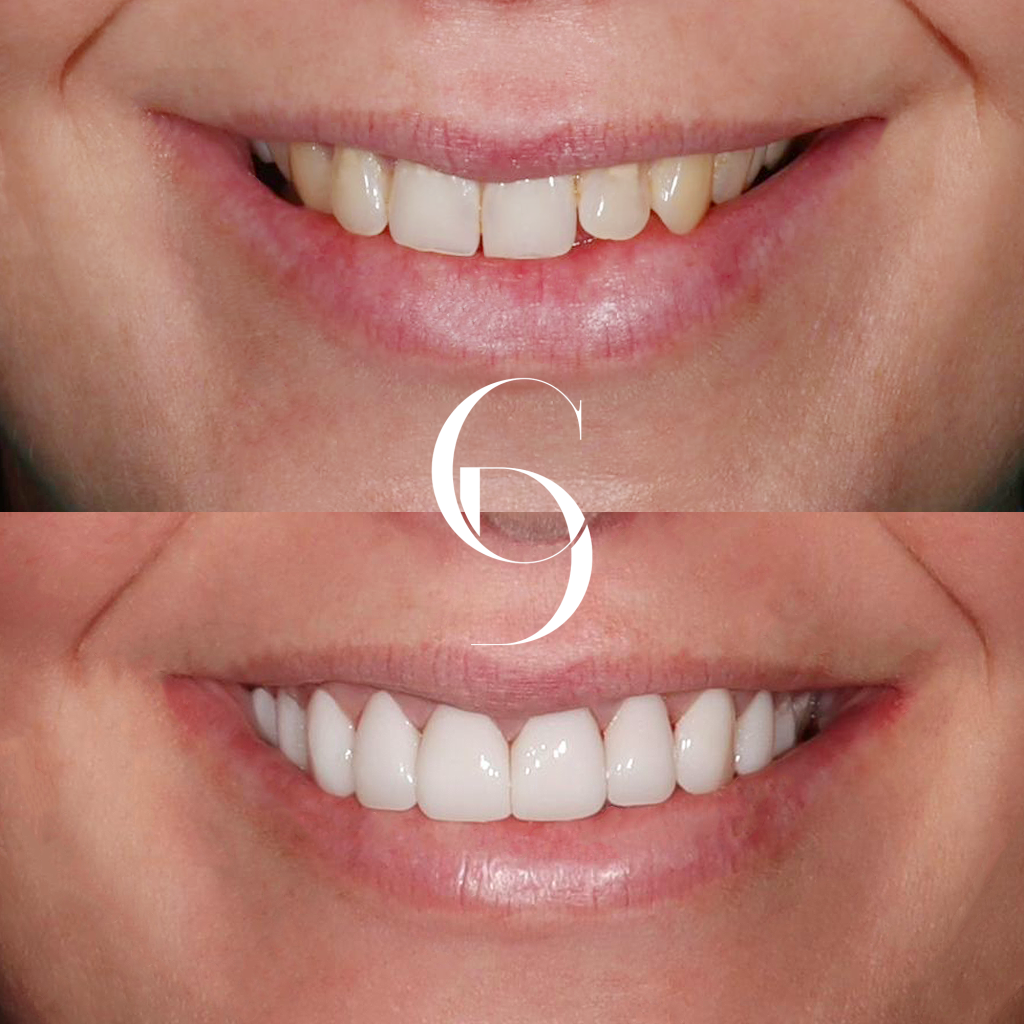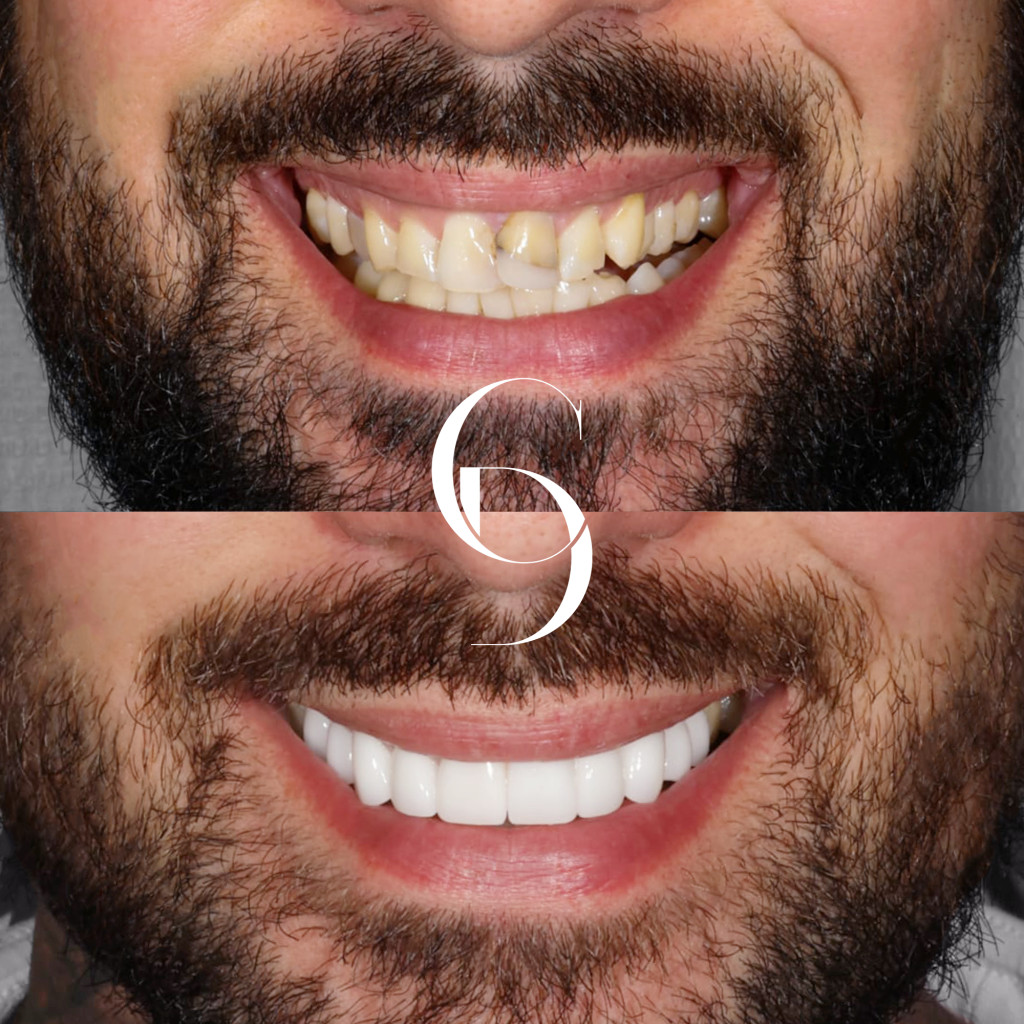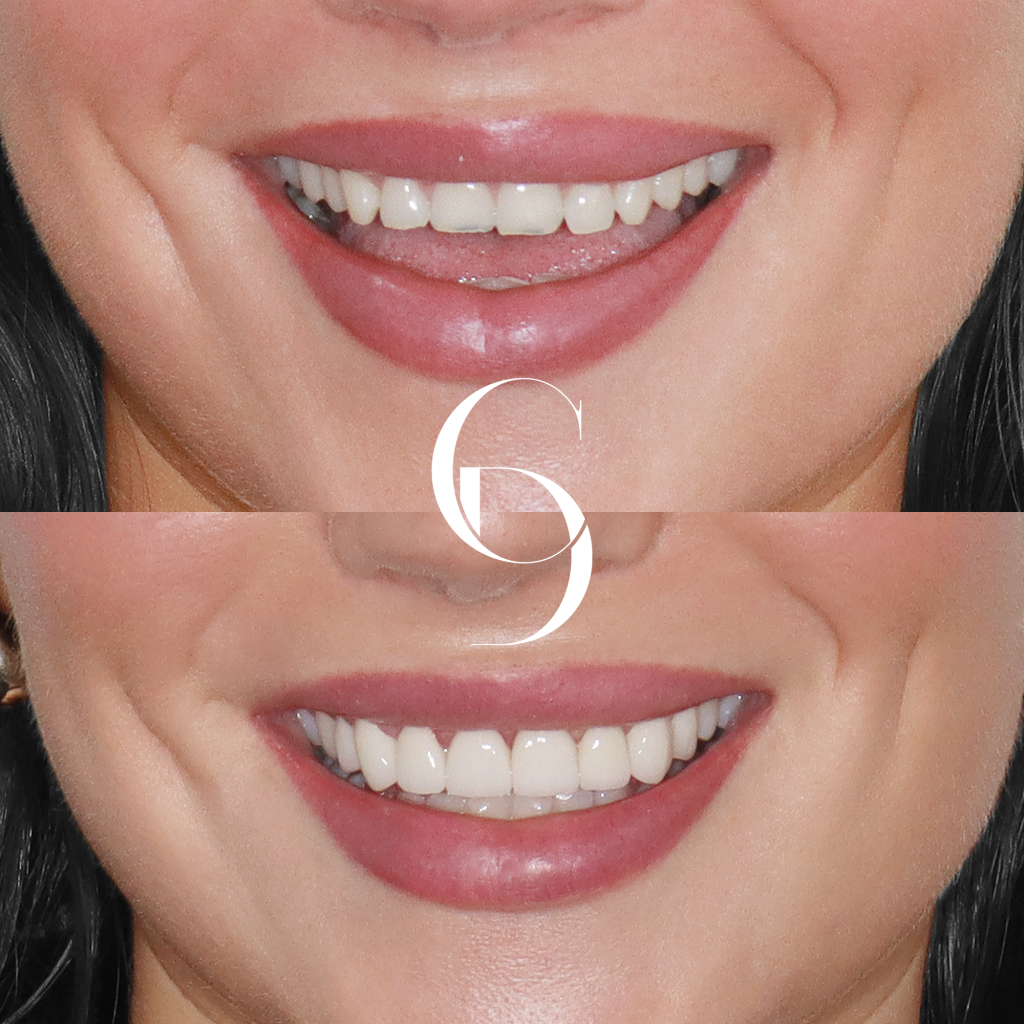Difference Between Composite and Porcelain Veneers: Crafting a Perfect Smile
Your smile is often one of the first features people notice about you, and it’s a signifier of warmth, approachability, and confidence.
For many individuals, achieving the perfect smile involves dental veneers as a powerful cosmetic dentistry solution. But when you’re looking to enhance your teeth, the choice between composite veneers vs porcelain veneers can seem like a significant decision to make. Each option offers unique advantages and is suited to different needs.
In this deep-dive blog post, we’ll explore the intricate difference between composite and porcelain veneers, helping you understand which could be the best fit for your dental quest for the ultimate smile.

Understanding the Basics of Veneers
Before we drill into the porcelain veneers vs composite, it’s crucial to comprehend what veneers are and how they can transform your smile. Veneers are ultra-thin shells of tooth-coloured materials, custom-made to cover the front surface of a tooth. They are bonded to the enamel of the tooth, mimicking the natural look of the original tooth.
What Do Veneers Address?
Veneers are renowned for their versatility in addressing common aesthetic concerns, which include:
- Stains and discolouration that resist traditional whitening treatments
- Chipped or broken teeth
- Irregularly shaped or misaligned teeth
- Gaps between teeth
- Worn down teeth
- Uneven teeth
The Pros and Cons of Composite Veneers
Composite veneers are made from a tooth-coloured resin, the same material used in dental bonding. Application of composite veneers is a direct process, meaning the veneers are sculpted on the tooth at the time of the patient’s visit to the dentist.
The Advantages of Composite Veneers
- Affordability:
Composite veneers typically cost less than their porcelain counterparts, making them a viable option for those with budget constraints.
- Conservative preparation:
The process involves minimal removal of the tooth’s surface, preserving more of your natural tooth structure.
- Easier to repair:
If a composite veneer is damaged, it can often be fixed easily and quickly by your dentist.
The Drawbacks of Composite Veneers
- Durability:
Composite veneers are more prone to staining and less resilient than porcelain, so they may need to be replaced or fixed more often.
- Aesthetic longevity:
While they’re initially impressive, the aesthetics of composite veneers can deteriorate over time.
The Shine on Porcelain Veneers
Porcelain veneers are crafted in a dental laboratory using high-grade ceramic. This indirect process involves taking an impression of the patient’s tooth, which then guides the lab technician in creating veneers to precise specifications.
The Benefits of Porcelain Veneers
- Durability and Stain Resistance:
Porcelain veneers are incredibly sturdy and are more resistant to staining than composite.
- Long-lasting aesthetics:
The colour of porcelain veneers is less likely to change over time, ensuring your smile remains bright and white.
- Customisation:
Porcelain veneers allow for more detailed customization, such as mimicking the translucency of natural teeth, providing a more realistic appearance.
The Disadvantages of Porcelain Veneers
- Cost:
The high-quality materials and specialised lab work mean that porcelain veneers are generally more expensive.
- Irreversible preparation:
The process of getting porcelain veneers requires a more significant removal of the tooth’s enamel. This is an irreversible process and makes the tooth reliant on a veneer for protection.
- More time-consuming:
Due to the fabrication process, getting porcelain veneers usually takes two dental appointments at minimum.
Which Veneer Option Is Right for You?
Deciding between porcelain veneers vs composite can be influenced by a range of factors, including your budget, your oral health, and your lifestyle.
Composite Veneers Might Be the Answer If:
- You’re looking for a more budget-friendly option.
- You prefer a treatment that is reversible and has no permanent changes to your teeth.
- Time constraints dictate you need to complete the procedure in a single dental visit.
Porcelain Veneers Could Be Your Solution If:
- Long-term durability and aesthetics are a priority for you.
- You want the most natural-looking results possible.
- You have the time to wait for a deluxe treatment that involves multiple visits and laboratory work.
The Personal Consultation—Where the Magic Happens
Ultimately, the best way to determine the ideal veneer type for you is through a consultation with a qualified cosmetic dentist.
What to Expect in Your Consultation
During your consultation, expect your dentist to discuss:
- Your dental history and current oral health
- Your aesthetic goals and expectations
- The pros and cons of each veneer type
- The procedure details, including preparation and aftercare
Your dentist will work with you to create a bespoke treatment plan that aligns with your needs and ensures the results you desire are achieved safely and effectively.
The Long-Term Smile Goals
Whether you opt for composite or porcelain veneers, one thing is certain: a beautiful, confidence-boosting smile is in your future. Remember, your smile is an investment, not only in your appearance but in your self-esteem and well-being.
At Cosmetique Dental, we understand that every smile is unique, and our team of experienced cosmetic dentists is committed to delivering bespoke care and outstanding results. With multiple branches across Sydney and Canberra, we’re at the forefront of crafting bespoke smile transformations with veneers.
We’ve fabricated thousands of veneers, turning dreams of a perfect smile into reality, and we’re ready to do the same for you. Book a consultation, take the first step towards a stunning smile, and discover the difference cosmetic veneers can make in your life.

